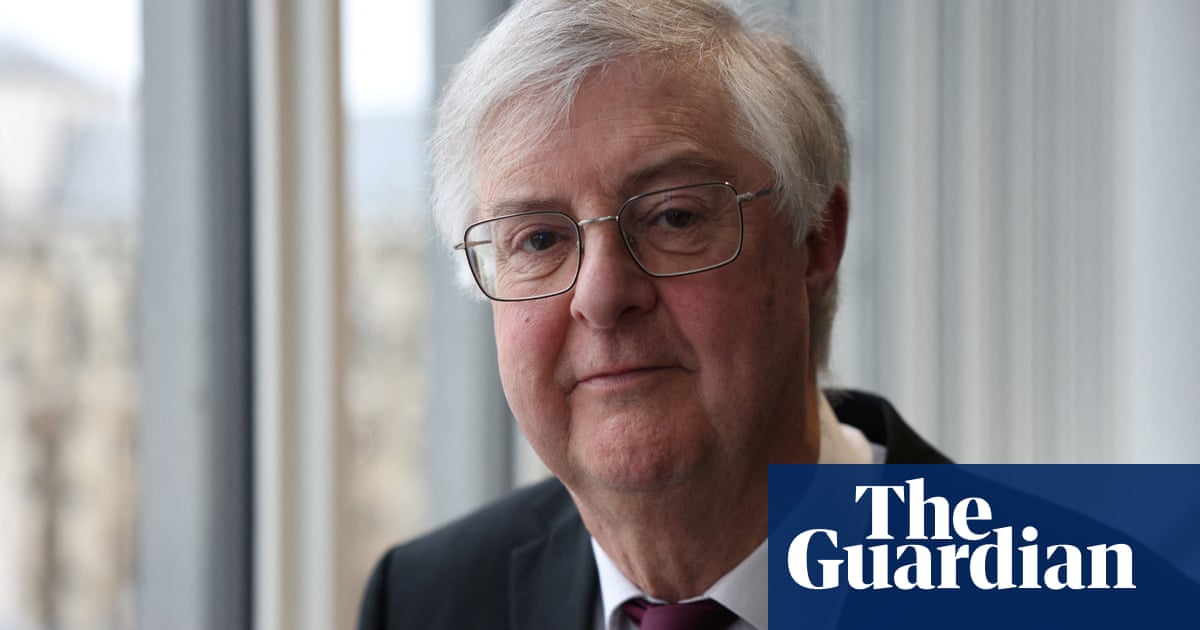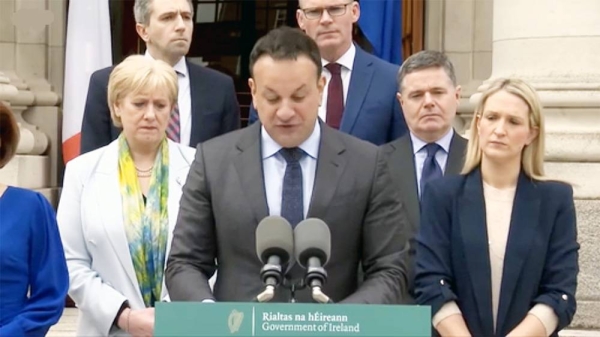
Arlene Foster has announced she is stepping down as leader of the Democratic Unionist party and Northern Ireland’s first minister after a sudden internal party revolt.
Foster issued a statement on Wednesday afternoon saying she would step aside as DUP leader on 28 May and as first minister at the end of June, bringing fresh tumult to a region hit by protests over the post-Brexit Irish Sea border.
The announcement came just a day after most of the DUP’s 27 Stormont assembly members and reportedly four of its eight Westminster MPs signed letters calling for an unprecedented leadership contest.
Foster said she had notified the party chair of her decision. “It is important to give space over the next few weeks for the party officers to make arrangements for the election of a new leader,” she said. “When elected I will work with the new leader on transition arrangements.”
The DUP struck down its leader to try to avert a voter backlash in next year’s assembly elections. Having supported Brexit and paved Boris Johnson’s path to Downing Street, the party stands accused of complicity in the EU exit deal’s Northern Ireland protocol. Ousting Foster appears to be an attempt to turn the page.
Free Presbyterians – Christian evangelicals who comprise a dwindling but still important chunk of the party’s base – were also angered when Foster and two DUP ministers abstained last week on an assembly vote to ban gay conversion practices.
The rebellion marked an abrupt and humiliating end to a tenure that began in 2015 amid excitement and goodwill – Foster was the youngest person and first woman to lead the DUP and Northern Ireland – only to curdle into rancour and disillusionment.
The “cash-for-ash” scandal and clashes with Sinn Féin collapsed power-sharing for three years. It revived last year only to be engulfed by Covid-19 and the fallout from Brexit, leaving the first minister a beleaguered figure reviled by nationalists and undermined within the DUP.
Foster’s exit is likely to open a new, uncertain chapter for Northern Ireland, which faces a DUP leadership race and change of command at the Stormont executive amid a pandemic and widespread unionist anger over the region’s post-Brexit trade border with Great Britain, which they fear will weaken the nation’s position in the UK.
There is no obvious successor to Foster but the MPs Sammy Wilson, Gavin Robinson and Jeffrey Donaldson have been tipped along with Edwin Poots, a Stormont assembly member and agriculture minister. On Wednesday he pulled out of a planned meeting with his Irish ministerial counterpart, Charlie McConalogue, in a move widely viewed as a nod to DUP hardliners.
Under party rules an electorate of 41 assembly members, MPs and peers will choose the new leader.
Foster’s departure suggests a crisis in unionist leadership on the cusp of Northern Ireland’s centenary – commemorations are to take place next week – and in the run-up to the loyalist marching season, which many fear will lead to fresh street disturbances.
Her resignation statement struck a conciliatory tone often absent in her previously combative political rhetoric. “It has been the privilege of my life to serve the people of Northern Ireland as their first minister and to represent my home constituency of Fermanagh/South Tyrone,” she said.
“As I prepare to depart the political stage it is my view that if Northern Ireland is to prosper, then it will only do so built on the foundations of successful and durable devolution. That will require continued hard work and real determination and courage on all sides.
“Whilst the focus is on me today I recognise that will pass. For me my decision to enter politics was never about party or person, it was about speaking up for the voiceless and building a Northern Ireland which could prosper and be at peace within the United Kingdom. I am the first to recognise there have been ups and downs over the last five and a half years.”
Her elevation had broken a glass ceiling, she said. “I am glad I inspired other women to enter politics and spurred them on to take up elected office. I understand the misogynistic criticisms that female public figures have to take and sadly it’s the same for all women in public life. I want to encourage you to keep going and don’t let the online lynch mobs get you down.”
Foster grew up near the border in rural County Fermanagh where Protestants felt besieged by IRA attacks during the Troubles. Her father, a farmer and part-time police officer, was shot and badly injured outside the family home.
Figures from across the political spectrum in and outside Northern Ireland paid tribute. Johnson thanked Foster for “her dedication to the people of Northern Ireland over many years”. The prime minister tweeted: “She will continue to play a vital role as first minister until June and I hope that she stays in public service for years to come.”
Brandon Lewis, the Northern Ireland secretary of state, called Foster a dedicated public servant who inspired women.
Micheál Martin, Ireland’s taoiseach, said she had worked hard in a fraught environment. “As a person who has personal experience of the suffering that violence brings, Arlene knows more than most how difficult it is, but also how important it is, to work together for the peace and prosperity for all.”
Sinn Féin’s leader, Mary Lou McDonald, expressed sympathy but did not laud Foster. “Today is undoubtedly a difficult day for Arlene and I extend my regards to her and her family.”












